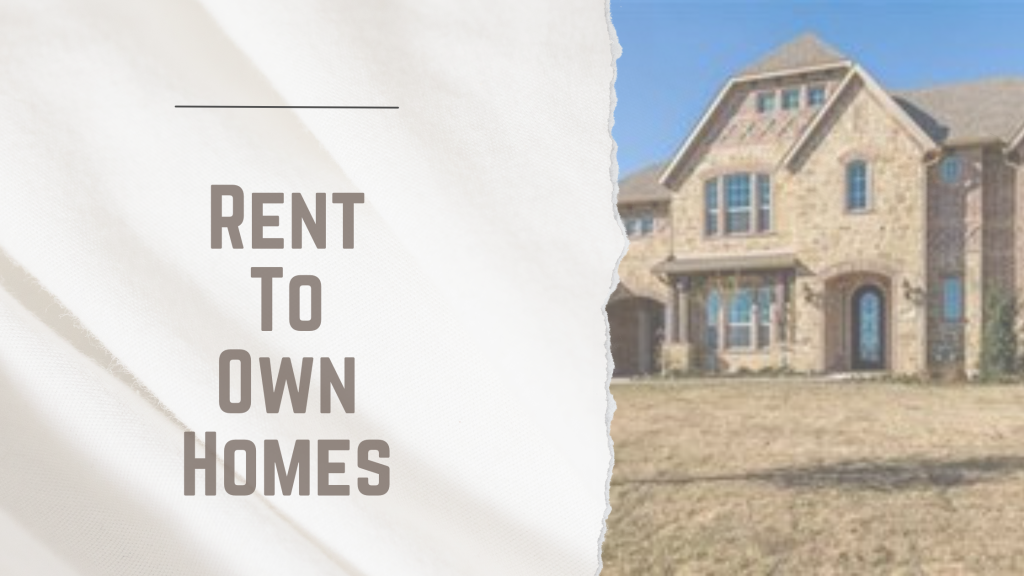Rent-to-own homes in North Carolina have gained attention as a creative solution for families who want to buy but cannot yet qualify for a mortgage. The concept seems simple: rent a home now, purchase it later, and build equity along the way. Yet the reality is more complex, and many myths surround the process. Misunderstandings about affordability, legal protections, and financial outcomes can lead buyers and sellers astray. This article separates fact from fiction, offering a clear view of what rent-to-own really means in the Tar Heel State.
Myth: Rent-to-Own is Always Cheaper than Buying
One of the most common misconceptions is that rent-to-own homes are automatically more affordable than traditional purchases. In reality, monthly rent in these agreements is often higher than market rates, with the difference applied as a credit toward the purchase price. While this can help tenants accumulate equity, it also means they are paying a premium each month. In North Carolina’s competitive markets, such as Charlotte and Raleigh, the higher rent can add up quickly. Rent-to-own may ease the burden of a down payment, but it does not guarantee a cheaper path to ownership.
Reality: Rent-to-Own Offers Flexibility
The true advantage of rent-to-own lies in flexibility. Buyers who cannot qualify for a mortgage today can move into a home and work toward ownership over time. Lease option agreements allow tenants to walk away if circumstances change, while lease purchase contracts create a binding commitment. For families in North Carolina who need time to repair credit or save for closing costs, this flexibility can be invaluable. Rent-to-own is not a shortcut, but it is a bridge for those willing to plan strategically.

Myth: Rent-to-Own Contracts Are Simple
Another myth is that rent-to-own agreements are straightforward. In fact, these contracts are often more complex than standard leases or purchase agreements. They include clauses about option fees, rent credits, maintenance responsibilities, and purchase timelines. In North Carolina, consumer protection laws require transparency, but disputes still arise when contracts are vague or misunderstood. Buyers who assume the process is simple may overlook critical details that affect their financial future. Legal guidance is essential to ensure clarity and fairness.
Reality: Buyers Carry More Responsibility
Unlike traditional renters, tenants in rent-to-own homes often assume responsibilities typically reserved for homeowners. Maintenance, repairs, and sometimes property taxes or insurance may fall on the tenant. This arrangement benefits sellers, who avoid upkeep costs, but it can surprise buyers unprepared for the financial burden. In North Carolina, where older homes are common in both urban and rural areas, unexpected repairs can quickly erode the perceived benefits of rent-to-own. Buyers must budget not only for rent but also for the hidden costs of upkeep.
Myth: Rent-to-Own Guarantees Ownership
Perhaps the most damaging myth is that rent-to-own guarantees eventual ownership. While the structure is designed to lead to purchase, success depends on the tenant’s ability to secure financing when the lease ends. If credit scores remain low or income is insufficient, buyers may lose their option fee and rent credits. In North Carolina, where lending standards remain strict, this risk is significant. Rent-to-own provides an opportunity, not a guarantee, and tenants must actively prepare for mortgage approval during the lease period.
Reality: Rent-to-Own Can Protect Against Rising Prices
One genuine advantage of rent-to-own agreements is the ability to lock in a purchase price at the start of the lease. In fast-growing markets like Raleigh and Charlotte, this can protect buyers from rising property values. By the time the lease ends, the home may be worth more than the agreed price, giving buyers instant equity. However, this benefit depends on market conditions. In areas where values stagnate or decline, buyers may end up paying more than the home is worth. Rent-to-own is a gamble on future market trends, and buyers should weigh the risks carefully.
Myth: Rent-to-Own is Only for Struggling Buyers
Rent to own in North Carolina is often portrayed as a last resort for buyers with poor credit. While it does serve that demographic, it is also used by families relocating to new areas, investors seeking stable tenants, and buyers who want to secure a home before they are financially ready. In North Carolina, rent-to-own agreements are increasingly common in suburban and rural markets, where sellers use them to attract a wider pool of potential buyers. The reality is that rent-to-own serves diverse needs, not just those of financially challenged households.
Conclusion
Rent-to-own homes in North Carolina are surrounded by myths that can mislead buyers and sellers alike. They are not always cheaper, not always simple, and not always guaranteed. Yet the reality is that rent-to-own offers flexibility, protection against rising prices, and opportunities for families who need time to prepare for ownership. By separating myth from reality, buyers can approach rent-to-own agreements with clear expectations and informed strategies. For those willing to navigate the complexities, rent-to-own remains a viable path to achieving the dream of homeownership in North Carolina.



